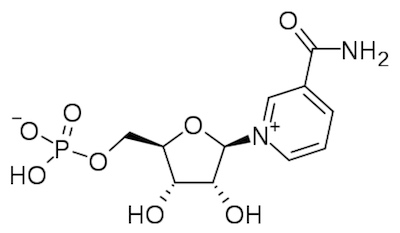Posted 02 June 2022 - 01:48 PM
The results of a multicenter clinical trial have been published, and the results suggest that NMN may have an anti-aging effect in people [1].
What is NMN?
NMN is short for nicotinamide mononucleotide, a naturally occurring molecule present in all species. It is a precursor of nicotinamide adenine dinucleotide (NAD+), a molecule that may be useful in slowing down some aspects of aging. NAD+ serves many critical functions in our cells, such as electron transport, cell signaling, facilitating cellular energy production, and DNA repair.
A growing amount of evidence suggests that as we age, our levels of NAD+ decline, increasing our risk of age-related diseases. This is why some researchers have proposed that restoring NAD+ levels in older people could help to slow down aging and keep them healthy.
NMN is marketed as a supplement and as a NAD+ booster, even though the data supporting its efficacy in humans was, until now, limited. There have been multiple animal studies suggesting that NMN slows down aging, but the evidence for human use has previously been lacking.
An NMN anti-aging human study
The goal of this study was to determine if NMN has any influence on aging in humans. NAD+ was chosen as its primary endpoint, and its increase was used as an indication of an anti-aging effect.
A higher amount of NAD+ present in cells has been correlated with higher energy levels. This makes sense given that NAD+ helps to produce ATP, which is a universal form of cellular energy.
Higher levels of NAD+ should also convey improved DNA repair, as its presence facilitates that [2]. This could also have an influence over genomic instability, which is thought to be a primary reason we age.
The study also chose the 6m walking test as a secondary endpoint. The researchers believed that NMN would improve energy levels and thus the walking capacity of participants.
The NMN study results
The study involved 66 healthy subjects aged between 40 and 65 years. Participants were given two capsules (containing 150 mg of NMN or starch powder) once a day following breakfast for a period of 60 days.
At day 30, NAD+/NADH levels in the serum showed a noteworthy increase, i.e., by 11.3%, whereas the placebo group had shown no change at all. At the end of the study, i.e., day 60, the NAD+/NADH levels were increased further by 38% compared to baseline, against a mere 14.3% in the placebo group. In the case of SF 36, at day 60, the NMN group showed a rise of 6.5%, whereas the placebo group was merely raised by 3.4%.
The results suggest there is a clear and significant increase of NAD+ levels following the administration of NMN. This would suggest that the NMN is entering the cells to increase energy levels and could be interpreted as an anti-aging effect.
At the end of the study, the mean HOMA IR Index showed a rise of 0.6% among the NMN group and 30.6% among the Placebo group from baseline.
Homeostatic Model Assessment of Insulin Resistance (HOMA IR) shows how much insulin your pancreas needs to regulate blood sugar levels. Developed in the 1980s, it is an indirect measure that is calculated from fasting glucose and fasting insulin levels. While it does have its limitations, it is widely used in clinical research.
The HOMA score rose significantly in the placebo group given starch powder, while there was little change in the group taking NMN. The researchers suggest that this demonstrates an age-slowing effect and that without NMN, HOMA became worse.
The walking endurance increased by 4.3% in the NMN group and 3.9% in the placebo group on day 30 of the treatment. So no effective difference was seen on day 30 of the treatment for walking endurance. When the same treatment was continued up to day 60, the NMN group showed a rise of 6.5% whereas for the placebo group, it remained the same, i.e., 3.9%.
While this is a small increase and not really significant, it would be interesting to see if the difference between the placebo and test groups increases with longer-term use. Six months to a year could potentially increase that difference, but it would be interesting to see that put to the test.
Conclusion
This trial was conducted by an employee of Effepharm (Shanghai) Co., Ltd and that the company supplied the NMN. While this does not necessarily mean that the data and their interpretation should be discounted, it should be considered when evaluating the results.
The other caveat is that the size of the trial was only 66 people, which is quite small. The larger the trial, the less prone results are to statistical noise and the more reliable they tend to be.
Given the mechanisms by which NAD+ has been shown to work in mice and other animals, there is every reason to believe that it should work in a similar way in humans, but so far, conclusive results in people have not been obtained. This study, if the results are to be believed, does suggest that NMN may have beneficial effects on aging in humans.
Literature
[1] Huang, D. A Multicentre, Randomized, Double Blind, Parallel Design, Placebo Controlled Study to Evaluate the Efficacy and Safety of Uthever (NMN Supplement), an Orally Administered Supplementation in Middle Aged and Older Adults. Frontiers in Aging, 26.
[2] Li, J., Bonkowski, M. S., Moniot, S., Zhang, D., Hubbard, B. P., Ling, A. J., … & Sinclair, D. A. (2017). A conserved NAD+ binding pocket that regulates protein-protein interactions during aging. Science, 355(6331), 1312-1317.
View the article at lifespan.io












































